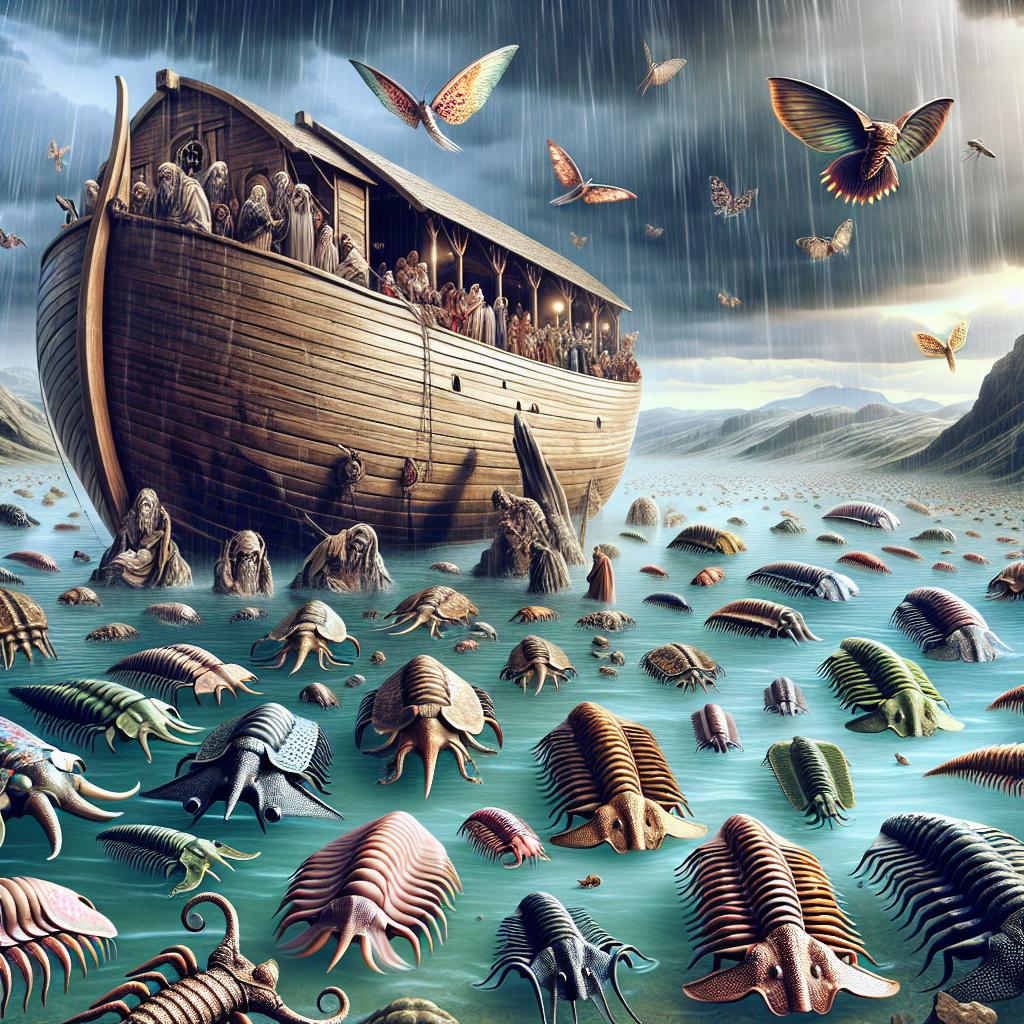
Unveiling the Mystery: Trilobites on Noah's Ark - A Faithful Perspective
Published: 16 April 2024
Trilobites on the Ark
Introduction
In Hugh Ross's book, "A Matter of Days," he attempts to add billions of years to the Bible and questions the validity of young-earth creationists. However, his arguments are flawed and demonstrate a lack of understanding of biblical creationism. This article will address several key points from Ross's book and provide a young-earth creationist perspective on the topics discussed.
Misunderstanding Hebrew
One recurring issue with Ross's arguments is his misinterpretation of Hebrew words. He claims that the Hebrew word "mîn" in Genesis 1 implies a narrow definition of "kind." However, he incorrectly cites Leviticus 19:19 as an example, when the actual word used is "kil'ayîm." This mistake raises concerns about Ross's credibility and the validity of his claims.
The "YECs are hyperDarwinists" Canard
Ross falsely accuses young-earth creationists of being "hyperDarwinists" and criticizes them for opposing scientific advances. However, this claim is baseless. Young-earth creationists do not oppose scientific advances; rather, they question the evolutionary interpretation of these advances. Ross's assertion that YECs are against interventionist views is unfounded, as many articles published by young-earth creationist organizations support the idea of design in creation.
Speciation and Variation Within Kinds
Ross attempts to undermine the young-earth creationist teaching of variation within created kinds. He argues that speciation debates center around the meaning of the Hebrew word "mîn." However, he fails to understand that variation within kinds does not contradict biblical creationism. The ability for different breeds to mate with one another does not negate the fact that they descended from a single created kind.
Hybridization Experiments and Created Kinds
Ross dismisses the significance of hybridization experiments in understanding created kinds. He argues that these experiments do not reflect natural conditions. However, his claim is purely speculative and lacks evidence. Hybridization experiments demonstrate that animals of different kinds can successfully mate and produce offspring. This supports the idea that different breeds within a family, such as the false killer whale and bottlenose dolphin, are part of the same created kind.
The Origin of Human People Groups
Ross misunderstands the genetic variation among human people groups and proposes an alternative explanation for their differences. He suggests that God introduced racial distinctives at Babel to aid separation among people groups. However, this view is not supported by Scripture and undermines the biblical teaching of human equality. Genetic studies have shown that the genetic differences between human races are trivial, making the concept of race biologically meaningless.
The Evolution of Carnivory
Ross misrepresents the young-earth creationist belief that carnivores evolved rapidly from herbivores after Adam and Eve's rebellion. He characterizes this belief as considering carnivorous activity as evil. However, young-earth creationists do not consider carnivorous activity evil because animals are not moral agents. The change from herbivory to carnivory could have been a result of changes in behavior or information loss, rather than new genetic information.
The Flood and Extinction
Ross misrepresents the young-earth interpretation of the global Flood and its impact on animal species. He claims that most species on board Noah's Ark went extinct shortly after the Flood. However, he fails to consider that trilobites, which he mentions as an example, were marine creatures and not passengers on the Ark. Trilobites would have been among the first creatures buried during the Flood.
Summary
In conclusion, Hugh Ross's arguments in "A Matter of Days" fail to undermine biblical creationism. His misunderstandings of Hebrew words, misrepresentation of young-earth creationist beliefs, and flawed interpretations demonstrate a lack of credibility. It is important for Christians to critically evaluate claims and ensure they align with biblical teachings and scientific evidence.
Why This Matters
Understanding the young-earth creationist perspective and addressing misconceptions is crucial for engaging in meaningful discussions about the interpretation of Scripture and scientific evidence. By examining the flaws in Ross's arguments, we can better articulate the biblical view of creation and respond to challenges from those who hold different beliefs.
Think About It
How does accurately interpreting Hebrew words contribute to our understanding of biblical creationism? How can we reconcile scientific evidence with the biblical account of creation?
